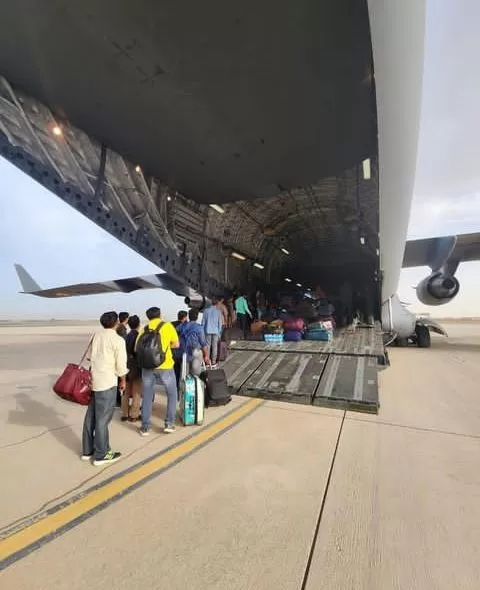Exploring the world and immersing oneself in diverse cultures is an enriching experience. One country that offers unique and captivating travel opportunities is Sudan. With its rich history, breathtaking landscapes, and warm hospitality, Sudan has become an increasingly popular destination for travelers. However, before embarking on your journey, it is essential to stay informed about the latest Sudan travel advisory.
Understanding the Travel Advisory System
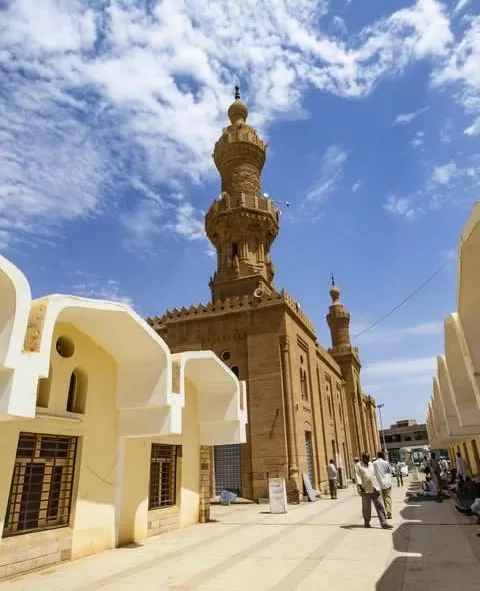
Before planning any international trip, it is crucial to familiarize yourself with the travel advisory system. Governments issue travel advisories to provide information about potential risks and hazards that travelers may face in specific countries.
These advisories are regularly updated to reflect the current situation and help travelers make informed decisions about their journeys.
Current Situation in Sudan
Sudan, a country in northeastern Africa, has made significant strides in recent years towards stability and development. However, it is still important to be aware of the current situation and any potential risks before traveling to Sudan.
Check the official travel advisory issued by your government or visit reliable sources such as the Department of State or foreign embassy websites for the most up-to-date information.
Safety Precautions and Travel Tips
- Research and Planning: Thoroughly research Sudan’s culture, customs, and local laws before your trip. Plan your itinerary in advance, including accommodation, transportation, and activities.
- Register with Your Embassy: Before traveling, register with your embassy or consulate in Sudan. This will ensure that they can reach you in case of emergencies or provide you with important updates.
- Stay Informed: Regularly monitor the travel advisory for Sudan and stay informed about any changes in the security situation. Subscribe to travel alerts and updates from your government.
- Local Guides and Tour Operators: When exploring Sudan, consider hiring local guides or tour operators who are knowledgeable about the region. They can provide valuable insights, enhance your safety, and help you navigate unfamiliar areas.
- Respect Local Customs: Sudan is a predominantly Muslim country with conservative values. Respect the local customs, dress modestly, and adhere to local traditions to show cultural sensitivity.
- Avoid Demonstrations and Crowded Areas: Political demonstrations and large gatherings can escalate quickly. Avoid participating in or getting close to such events, as they may pose safety risks.
- Secure Your Belongings: Practice good personal security by keeping your valuables secure and being cautious of pickpockets. Use hotel safes or secure lockers to store your belongings.
- Health and Vaccinations: Check with your healthcare provider for any recommended vaccinations or health precautions before traveling to Sudan. Carry a basic medical kit for minor ailments and emergencies.
- Travel Insurance: Obtain comprehensive travel insurance that covers medical expenses, trip cancellations, and lost luggage. It is important to be prepared for unforeseen circumstances during your trip.
- Stay Connected: Ensure you have a reliable means of communication while in Sudan. Purchase a local SIM card or consider using international roaming services to stay connected with your loved ones and access emergency services.
- Transportation Safety: When using public transportation or hiring a vehicle, prioritize your safety. Choose reputable taxi services, wear seatbelts, and follow traffic rules. Be cautious while crossing roads, as traffic conditions may be different from what you’re accustomed to.
- Hydration and Sun Protection: Sudan has a hot desert climate, so it is crucial to stay hydrated and protect yourself from the sun. Drink plenty of water, wear sunscreen, and carry a hat and sunglasses to shield yourself from the intense heat.
- Respect Wildlife and Environment: Sudan boasts diverse wildlife and natural wonders. While enjoying nature, respect wildlife habitats and do not disturb or feed the animals. Follow eco-friendly practices by disposing of waste responsibly and leaving no trace.
- Cultural Etiquette: Sudanese people are known for their warm hospitality. Embrace their culture and customs with respect. Greet locals with a smile, ask for permission before taking photographs, and engage in conversations to learn more about their traditions.
- Emergency Contacts: Familiarize yourself with emergency contact numbers in Sudan, including the local police, ambulance services, and your embassy or consulate. Keep these numbers saved in your phone and easily accessible at all times.
Must-Visit Destinations in Sudan
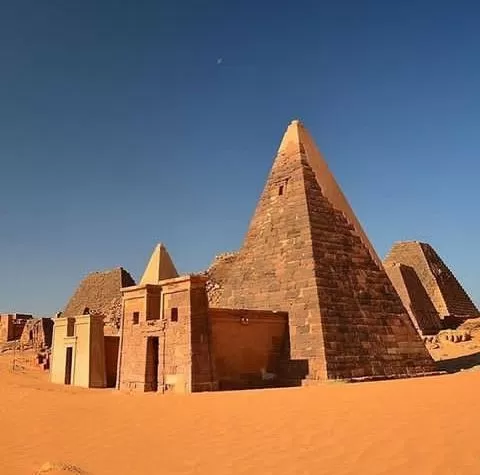
Sudan offers a wealth of captivating destinations that showcase its history, natural beauty, and cultural heritage. Here are a few must-visit places to include in your itinerary:
1. Khartoum:
Discover Sudan’s vibrant capital city, where the Blue and White Nile rivers merge. Visit the National Museum, explore lively markets, and experience the bustling street life.
2. Meroe Pyramids:
Marvel at the ancient pyramids of Meroe, a UNESCO World Heritage site. These Nubian pyramids stand as a testament to Sudan’s rich archaeological heritage.
3. Jebel Barkal:
Explore the archaeological site of Jebel Barkal, a sacred mountain and home to impressive ancient temples and tombs. Admire the view from the top for a breathtaking panorama.
4. Nubian Desert:
Embark on an unforgettable desert adventure in the vast Nubian Desert. Experience camel trekking, camp under the starry sky, and immerse yourself in the tranquility of this majestic landscape.
5. Dinder National Park:
Discover Sudan’s wildlife diversity at Dinder National Park. Spot rare species such as elephants, lions, and various bird species as you explore the park’s lush savannahs and riverine forests.
Exploring Sudanese Culture and Heritage

Sudan’s rich cultural heritage is deeply intertwined with its history. Immerse yourself in the following aspects of Sudanese culture:
Language and Religion:
Arabic is the official language of Sudan, while Islam is the predominant religion. Engage with locals and learn some common Arabic phrases to enhance your cultural experience.
Music and Dance:
Experience the vibrant rhythms and melodies of Sudanese music. From traditional folk music to contemporary genres, Sudan’s music scene is a reflection of its diverse cultural influences.
Festivals and Celebrations:
Participate in Sudan’s colorful festivals and celebrations. Witness the fervor of Eid al-Fitr, Sudan’s Independence Day, or the vibrant Whirling Dervishes ceremony.
Traditional Crafts:
Sudanese craftsmanship is renowned for its intricate pottery, weaving, and basketry. Visit local markets to appreciate and support these traditional artisans.
Cuisine and Local Delicacies in Sudan
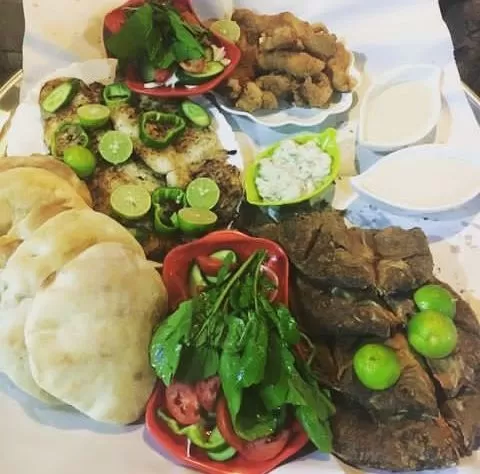
Sudanese cuisine offers a delightful blend of flavors and influences from Arabic, African, and Middle Eastern culinary traditions. Indulge in the following local delicacies:
1. Ful Medames:
A popular Sudanese breakfast dish made from cooked fava beans seasoned with spices, olive oil, and served with bread. It is a hearty and nutritious start to the day.
2. Kisra:
Kisra is a traditional Sudanese bread made from fermented sorghum or corn dough. It is often served with stews and curries and is a staple in Sudanese cuisine.
3. Mulukhiyah:
Mulukhiyah is a savory stew made from the leaves of the mulukhiyah plant, which is cooked with meat (usually chicken or beef) and flavored with garlic, coriander, and spices. It is commonly served with Sudanese bread or rice.
4. Asida:
Asida is a thick porridge made from wheat flour or sorghum and often sweetened with honey or dates. It is a traditional Sudanese dessert and is enjoyed on special occasions.
5. Shai Sai’d:
Savor a cup of Shai Sai’d, Sudanese tea infused with cinnamon, ginger, and other aromatic spices. It is a popular drink enjoyed throughout the day and is often served with roasted peanuts or sunflower seeds.
Wildlife and Natural Wonders of Sudan
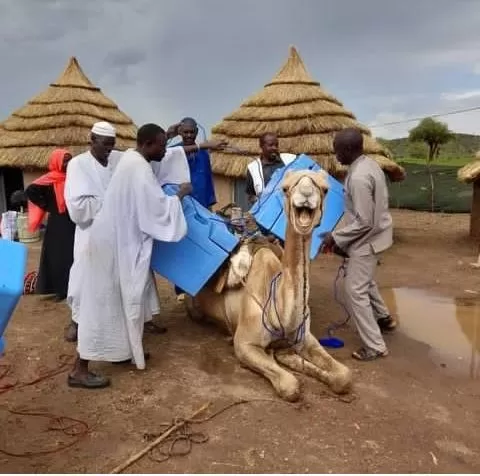
Sudan is home to remarkable wildlife and breathtaking natural landscapes. Explore the following natural wonders:
1. Dinder National Park:
Discover the diverse flora and fauna of Dinder National Park, located in southeastern Sudan. The park encompasses vast grasslands, riverine forests, and wetlands, providing a habitat for numerous animal species, including elephants, giraffes, and various antelope species.
2. Red Sea Coastline:
Experience the beauty of Sudan’s Red Sea coastline, renowned for its pristine beaches, crystal-clear waters, and vibrant coral reefs. Snorkel or dive in the vibrant underwater world teeming with colorful marine life.
3. Jebel Marra:
Jebel Marra is a volcanic massif in western Sudan, offering awe-inspiring landscapes with its rugged mountains, deep valleys, and picturesque waterfalls. It is a paradise for hikers and nature enthusiasts.
4. Sanganeb National Park:
Located in the Red Sea, Sanganeb National Park is a UNESCO World Heritage site known for its stunning coral reefs and abundant marine biodiversity. Dive or take a boat tour to witness the vibrant underwater ecosystems.
5. Suakin Island:
Step back in time on Suakin Island, an ancient port city located on the Red Sea coast. Explore its historic ruins, unique architecture, and experience the rich cultural heritage of this significant trading hub.
Adventurous Activities in Sudan
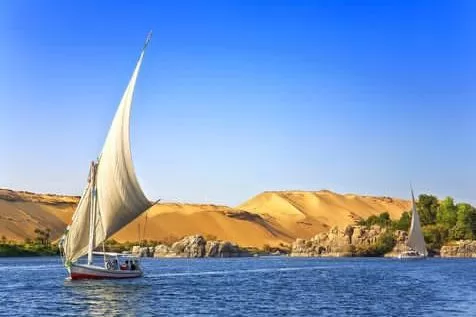
For those seeking adventure and adrenaline, Sudan offers thrilling activities to satisfy your adventurous spirit:
1. Nile River Cruises:
Embark on a scenic Nile River cruise and witness the stunning landscapes of Sudan from a unique perspective. Enjoy the tranquility of the river and explore riverside villages and ancient temples along the way.
2. Desert Safaris:
Embark on an exhilarating desert safari and traverse the vast sandy landscapes of Sudan. Experience the thrill of dune bashing, sandboarding, and camping under the starry desert sky.
3. Mountain Trekking:
Conquer the peaks of Jebel Barkal or Jebel Marra through challenging treks. Enjoy panoramic views, discover hidden valleys, and immerse yourself in the rugged beauty of Sudan’s mountains.
4. Wildlife Safaris:
Embark on a wildlife safari in Dinder National Park or other wildlife reserves in Sudan to witness Sudan’s diverse wildlife up close. Spot elephants, lions, cheetahs, zebras, and a variety of bird species as you venture through the wilderness accompanied by experienced guides.
5. Scuba Diving and Snorkeling:
Explore the vibrant underwater world of Sudan’s Red Sea. Dive or snorkel in pristine coral reefs teeming with colorful fish, sea turtles, and even the chance to spot dolphins or whale sharks. Experienced dive operators can guide you to the best diving spots.
Accommodation Options in Sudan
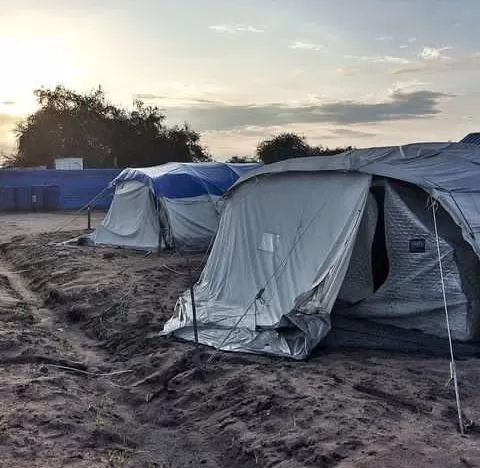
Sudan offers a range of accommodation options to suit various budgets and preferences. From luxurious hotels to budget-friendly guesthouses, you’ll find comfortable places to stay in major cities and tourist destinations. Some popular accommodation choices include:
Luxury Hotels: Enjoy the amenities and top-notch services offered by renowned international hotel chains in cities like Khartoum and Port Sudan.
Boutique Hotels: Discover charming boutique hotels that blend Sudanese hospitality with modern comforts. These smaller establishments often provide a personalized experience and showcase local culture.
Guesthouses: Stay in guesthouses or bed and breakfast establishments, especially in smaller towns and rural areas. These options offer a cozy and homely atmosphere, allowing you to interact with locals and immerse yourself in Sudanese hospitality.
Eco-Lodges: Experience sustainable tourism by opting for eco-lodges situated in natural settings. These accommodations focus on minimizing their environmental impact and provide a unique opportunity to connect with nature.
Campsites: For adventurous travelers, camping is a fantastic option. There are designated campsites in national parks and wilderness areas where you can pitch a tent and enjoy the serenity of Sudan’s landscapes.
Transportation in Sudan
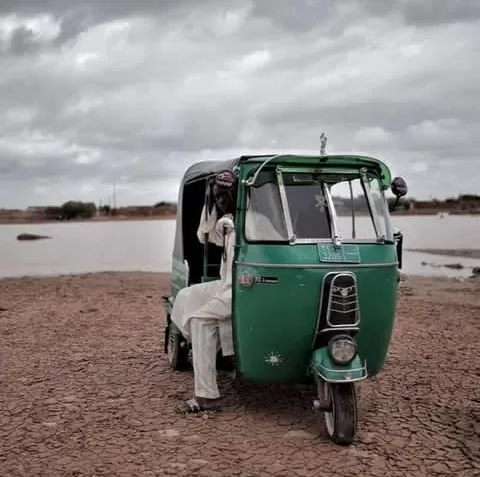
Navigating Sudan’s vast territory is made possible through various modes of transportation:
Domestic Flights: Domestic airlines operate flights between major cities, making it convenient to cover long distances quickly. This is particularly useful when traveling to remote areas or across different regions of Sudan.
Trains: Sudan’s rail network connects major cities, offering a scenic and affordable mode of transportation. However, train services may have limited schedules, so it’s important to plan your journey accordingly.
Buses and Minibusses: Buses and minibusses are the primary means of transportation for both short and long distances. They provide an affordable option for traveling within cities and between towns.
Taxis: Taxis, both regular and shared, are readily available in urban areas. Negotiate the fare before boarding or opt for metered taxis where available.
Car Rental: Renting a car gives you the freedom to explore Sudan at your own pace. However, driving in Sudan requires familiarity with local traffic rules and road conditions.
Ferries: If you plan to visit Suakin Island or explore the Nile River, ferries provide transportation options. Check the schedules in advance and prepare for a scenic journey.
It’s essential to plan your transportation ahead of time, particularly for long-distance travel, to ensure a smooth and efficient journey.
Etiquette and Cultural Considerations
When visiting Sudan, it’s important to respect local customs and traditions. Consider the following etiquette guidelines:
Dress Modestly: Sudan is a conservative country, and modest attire is expected, especially in public places and religious sites. Dress in loose-fitting clothing that covers your shoulders, arms, and legs.
Greetings: Greet locals with a warm “As-salamu alaykum” (peace be upon you) and respond to their greetings. Handshakes are common, but wait for a woman to initiate physical contact.
Respect Religious Practices: Sudan is predominantly Muslim, and it’s important to respect Islamic customs. During Ramadan, the holy month of fasting, avoid eating, drinking, or smoking in public during daylight hours.
Public Displays of Affection: Sudanese society is conservative, and public displays of affection are generally frowned upon. It’s best to avoid such displays to respect local cultural norms.
Photography Etiquette: Always seek permission before taking photographs of individuals, especially in more rural or traditional areas. Respect any restrictions on photography in certain locations, such as military or government buildings.
Right Hand Etiquette: In Sudanese culture, the right hand is considered clean and the left hand unclean. Use your right hand for greeting, eating, and handing over items, while keeping your left hand at your side.
Dining Etiquette: If you are invited to a Sudanese home for a meal, it is customary to wash your hands before and after the meal. Use your right hand to eat and accept food and drinks with your right hand as a sign of respect.
Language and Communication: English is spoken to some extent in urban areas, but learning a few basic Arabic phrases will be greatly appreciated and help you connect with locals. Sudanese people are known for their warmth and hospitality, so engage in conversations to learn more about their culture and customs.
Conclusion
Sudan is a captivating destination offering a wealth of historical, natural, and cultural treasures. By following the travel advisory guidelines, respecting local customs, and embracing the country’s rich heritage, you can have a memorable and rewarding experience in Sudan.
From exploring ancient pyramids and vibrant markets to immersing yourself in the warmth of Sudanese hospitality, this diverse country is waiting to be discovered.
Frequently Asked Questions (FAQs)
1. Is Sudan safe for tourists?
Sudan is generally safe for tourists who follow safety precautions, adhere to travel advisories, and respect local customs. It is advisable to stay informed about the current situation and seek guidance from reliable sources before traveling.
2. Do I need a visa to visit Sudan?
Yes, most travelers require a visa to enter Sudan. It is recommended to obtain a visa before traveling to avoid any inconvenience at the port of entry. Check with the nearest Sudanese embassy or consulate for specific visa requirements.
3. What is the best time to visit Sudan?
The best time to visit Sudan is during the cooler months from November to February when temperatures are more moderate. However, different regions of Sudan have varying climates, so it’s important to consider the specific destinations you plan to visit.
4. Can I drink tap water in Sudan?
It is not advisable to drink tap water in Sudan. Stick to bottled water, which is widely available. Ensure that the seal of the bottle is intact before consuming.
5. Are there any specific health precautions I should take before traveling to Sudan?
It is recommended to consult a healthcare professional or travel clinic before traveling to Sudan to receive updated information on necessary vaccinations and health precautions. Additionally, it’s essential to have comprehensive travel insurance that covers medical expenses.
Thank you for reading this article.
See also
Sudan Location: A Geographical Overview
Uganda Interesting Facts You Must Know
Algeria Travel Requirements: All You Need to Know
Botswana Travel Requirements (How To Apply For The Evisa)
Tunisia Travel Guide: Discover the Riches of North Africa
Namibia Africa: A Beautiful Destination To Visit

